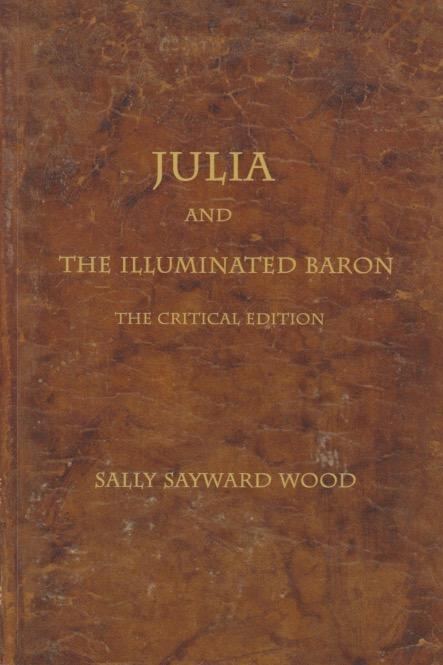
A mere month ago I had never heard of Sally Sayward Wood. She has seldom received much attention, and it may be in part because her literary finesse wasn’t quite that of her compatriots. Wood, however, was the earliest American woman to write a gothic novel. She was also Maine’s first novelist. I learned of Julia and the Illuminated Baron from a rather unexpected source, but my interest in the history of horror meant that I knew I would have to read it. Original printings are extremely rare, but the University of Maine has brought them back into circulation. Julia was published in 1800 and it is old-style gothic. Set in France, among the aristocracy, it has gloomy castles, dastardly villains, and damsels in distress. The story also involves an extremely complex set of titled gentry that end up being fairly closely related by the end of the novel. Well into the story (after about 150 pages) it grows somewhat exciting, but the denouement is something you can see coming, though.
What is really striking about this gothic romance is the extreme vitriol served up to the Illuminati. In particular, Wood seems quite affronted by their atheistic outlook, stating rather boldly that without Christian sensibilities that morals can’t be preserved. This wasn’t an uncommon view around the turn of the nineteenth century, of course. The Enlightenment had begun to take hold and not a few people were very concerned about the implications. Social change must be slow, if it is to have lasting impact. Quick change leads to reactionary backlashes, as anyone who looks at history knows. Still, this makes Wood’s villain particularly nasty. Perhaps even more surprising is that such biases continue today.
Gothic was an important part of early American literature. It owes quite a bit to its European forebears, but it developed into its own form in the New World. When she does mention America, Wood ladles praise on George Washington. She was born, of course, before the Revolutionary War, when Maine was still part of Massachusetts. All of this makes me feel somewhat less of a pariah, knowing that the early American tradition was part of the family tree for horror. In today’s parlance gothic might seem far from the slasher, but without gothic we’d never have had our classic ghost stories that first gave people the frisson that begged for further expression. Julia and the Illuminated Baron is a bit too satisfied with the wealthy overlords of the second estate. It is a work of fantasy, however, of one of the earliest American women to try her hand at fiction.
